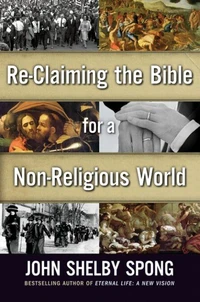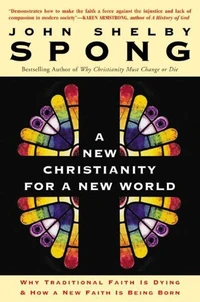The Sins of Scripture. Exposing the Bible's Texts of Hate to Reveal the God of Love
Par :Formats :
Disponible dans votre compte client Decitre ou Furet du Nord dès validation de votre commande. Le format ePub protégé est :
- Compatible avec une lecture sur My Vivlio (smartphone, tablette, ordinateur)
- Compatible avec une lecture sur liseuses Vivlio
- Pour les liseuses autres que Vivlio, vous devez utiliser le logiciel Adobe Digital Edition. Non compatible avec la lecture sur les liseuses Kindle, Remarkable et Sony
- Non compatible avec un achat hors France métropolitaine
 , qui est-ce ?
, qui est-ce ?Notre partenaire de plateforme de lecture numérique où vous retrouverez l'ensemble de vos ebooks gratuitement
Pour en savoir plus sur nos ebooks, consultez notre aide en ligne ici
- FormatePub
- ISBN978-0-06-183560-5
- EAN9780061835605
- Date de parution13/10/2009
- Protection num.Adobe DRM
- Infos supplémentairesepub
- ÉditeurHarperOne
Résumé
In the history of the Western World, the Bible has been a perpetual source of inspiration and guidance for countless Christians. However, this Bible has also left a trail of pain. Controversial bishop and champion of liberal Christianity John Shelby Spong explores those passages that have been used to justify oppression, violence, discrimination against women and homosexuals, and murder. As he exposes and challenges what he calls the "terrible texts of the Bible, " laying bare the evil done in the name of God, he also seeks to redeem them, hoping to recover their ultimate depth and purpose.
As Spong battles against the way the Bible has been used throughout history, he provides a new framework for interpretation, explaining how the Bible's overall good news overcomes these "terrible texts, " and delivering a fresh, inspiring message of how Christians can use the Bible today.
John Shelby Spong was the Episcopal Bishop of Newark before his retirement in 2000.
As a visiting lecturer at Harvard and at universities and churches throughout North America and the English-speaking world, he is one of the leading spokespersons for liberal Christianity. His books include A New Christianity for a New World, Rescuing the Bible from Fundamentalism, Resurrection: Myth or Reality?, Why Christianity Must Change or Die, and his autobiography, Here I Stand. "A valuable modernist manifesto for progressive readers seeking a response to the conservative theology dominating the news these days." -Boston Globe
As a visiting lecturer at Harvard and at universities and churches throughout North America and the English-speaking world, he is one of the leading spokespersons for liberal Christianity. His books include A New Christianity for a New World, Rescuing the Bible from Fundamentalism, Resurrection: Myth or Reality?, Why Christianity Must Change or Die, and his autobiography, Here I Stand. "A valuable modernist manifesto for progressive readers seeking a response to the conservative theology dominating the news these days." -Boston Globe
In the history of the Western World, the Bible has been a perpetual source of inspiration and guidance for countless Christians. However, this Bible has also left a trail of pain. Controversial bishop and champion of liberal Christianity John Shelby Spong explores those passages that have been used to justify oppression, violence, discrimination against women and homosexuals, and murder. As he exposes and challenges what he calls the "terrible texts of the Bible, " laying bare the evil done in the name of God, he also seeks to redeem them, hoping to recover their ultimate depth and purpose.
As Spong battles against the way the Bible has been used throughout history, he provides a new framework for interpretation, explaining how the Bible's overall good news overcomes these "terrible texts, " and delivering a fresh, inspiring message of how Christians can use the Bible today.
John Shelby Spong was the Episcopal Bishop of Newark before his retirement in 2000.
As a visiting lecturer at Harvard and at universities and churches throughout North America and the English-speaking world, he is one of the leading spokespersons for liberal Christianity. His books include A New Christianity for a New World, Rescuing the Bible from Fundamentalism, Resurrection: Myth or Reality?, Why Christianity Must Change or Die, and his autobiography, Here I Stand. "A valuable modernist manifesto for progressive readers seeking a response to the conservative theology dominating the news these days." -Boston Globe
As a visiting lecturer at Harvard and at universities and churches throughout North America and the English-speaking world, he is one of the leading spokespersons for liberal Christianity. His books include A New Christianity for a New World, Rescuing the Bible from Fundamentalism, Resurrection: Myth or Reality?, Why Christianity Must Change or Die, and his autobiography, Here I Stand. "A valuable modernist manifesto for progressive readers seeking a response to the conservative theology dominating the news these days." -Boston Globe






















